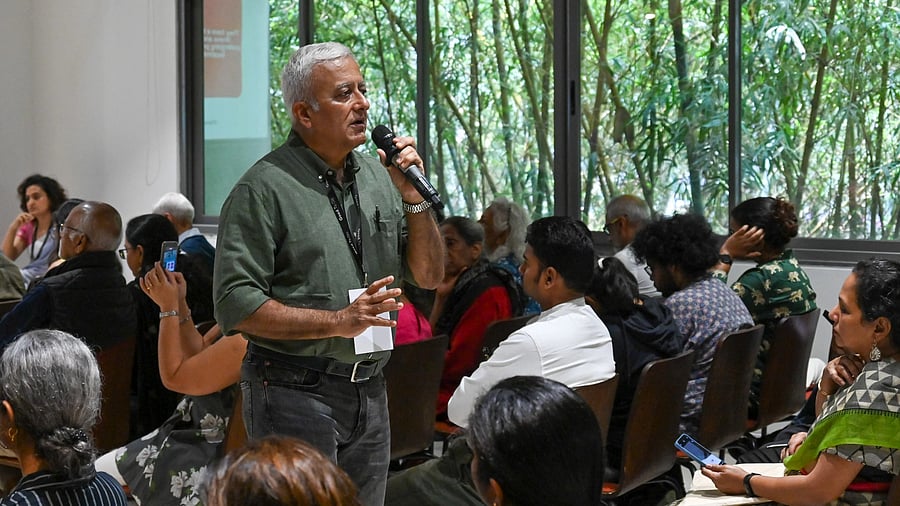
Neurologist Dr Roop Gursahani along with a team from the Vidhi Centre for Legal Policy at the workshop on Sunday.
DH PHOTO/PUSHKAR V
Bengaluru: "Euthanasia is not legal in India, but Advance Medical Directives (AMDs) are — and more people need to know that.”
This was the key message at a workshop on living wills during the first 'Death Literacy Festival' in Bengaluru on Sunday, which sought to spark conversations around end-of-life choices.
Neurologist Dr Roop Gursahani explained that an AMD allows a person, while of sound mind, to refuse treatment such as chemotherapy, dialysis, or artificial feeding in advance. This spares families the emotional burden of withdrawing treatment later.
An AMD takes effect only when the person cannot make decisions, such as in a coma or advanced dementia. It requires at least two designated healthcare representatives to uphold the patient’s wishes.
Experts called it a vital tool of autonomy, ensuring one’s final journey reflects personal values while easing stress for loved ones.
Dr Gursahani noted families often prolong invasive treatments for patients with irreversible conditions due to difficulty in letting go. “It is always easier emotionally and ethically to withhold rather than withdraw treatment,” he said.
Many participants expressed relief at learning that they could legally avoid interventions such as ventilators or feeding tubes in cases of terminal illness or irreversible decline.
The panel urged open family conversations. “Do not wait for a crisis,” said Dhvani Mehta of the Vidhi Centre for Legal Policy. “Document your choices now, while you are well, and ensure someone you trust can act on your behalf.”
What is an Advance Medical Directive?
An Advance Medical Directive (AMD) is a legal end-of-life planning tool allowing a person to record treatment preferences, including refusal of specific interventions.
It has two parts: living will: outlines treatment choices; and Designated Healthcare Representative (DHR): a trusted person nominated to act if the individual loses capacity.
Legal framework
The Supreme Court has provided a nationwide framework, though awareness remains low among the public, doctors, and officials. Only Karnataka, Maharashtra, Goa, and Punjab have issued implementation orders, though the ruling applies across India.
